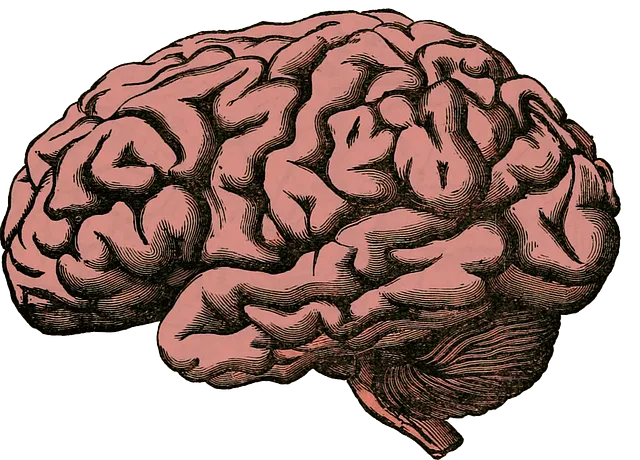Kaiser Permanente introduces a holistic Mental Health program in Centennial, Colorado, focusing on open conversations, reducing stigma, and offering personalized resources. Using community outreach and digital platforms, the program aims to cater to diverse demographics, fostering an inclusive environment for mental health improvement. The structured evaluation framework tracks participant satisfaction, clinical outcomes, and engagement through surveys, interviews, and data analytics, ensuring tailored interventions. Community engagement is key, involving local members and stakeholders to tailor emotional healing processes to regional needs and cultural context.
Mental wellness program evaluation is a vital aspect of ensuring effective healthcare initiatives. This article explores comprehensive methods, focusing on Kaiser Permanente’s innovative Mental Health Initiative and the Centennial Framework. We delve into metrics, measurement strategies, and the integral role of community engagement. By examining these components, we aim to provide valuable insights for evaluating and enhancing mental wellness programs, particularly within the context of large-scale healthcare organizations like Kaiser Permanente.
- Understanding Kaiser Permanente's Mental Health Initiative
- Centennial: A Framework for Program Evaluation
- Metrics and Measurement Strategies for Wellness Programs
- Community Engagement in Mental Wellness Evaluations
Understanding Kaiser Permanente's Mental Health Initiative

Kaiser Permanente, a healthcare organization renowned for its comprehensive approach to wellness, has been at the forefront of promoting mental health and well-being among its members. The Kaiser Permanente Mental Health Initiative, launched in Centennial (a city in Colorado), is a testament to their commitment. This initiative focuses on fostering a culture of open dialogue about mental health, reducing stigma, and providing accessible resources for stress reduction methods and empathy-building strategies.
Through this program, Kaiser Permanente aims to enhance Mental Health Awareness by offering diverse interventions tailored to individual needs. From community outreach programs to digital platforms promoting self-care, the initiative caters to a wide range of demographics. By implementing these innovative approaches, Kaiser Permanente strives to create a supportive environment where individuals can actively engage in managing and improving their mental wellness.
Centennial: A Framework for Program Evaluation

The Kaiser Permanente mental health Centennial framework provides a structured approach to evaluating wellness programs, ensuring their effectiveness and sustainability. This comprehensive model considers various aspects, from participant satisfaction to clinical outcomes, offering a holistic view of program success. By assessing engagement, impact on mental health symptoms, and integration within the healthcare system, organizations can tailor interventions to meet specific needs.
Leveraging insights from the Mental Wellness Podcast Series Production and Communication Strategies, Centennial encourages dynamic evaluation methods. Regular feedback mechanisms, such as surveys and interviews, capture participant perspectives, while data analytics track progress over time. Additionally, incorporating Burnout Prevention Strategies for Healthcare Providers within the evaluation process is essential, promoting resilience among those delivering care and ensuring long-term program viability.
Metrics and Measurement Strategies for Wellness Programs

Evaluating mental wellness programs requires a comprehensive approach, focusing on various metrics and measurement strategies. One notable example is Kaiser Permanente’s mental health initiatives in Centennial, which showcase effective program assessment methods. These programs often go beyond traditional surveys to capture nuanced improvements. By incorporating qualitative data from participant feedback, observations, and interviews, they gain insights into the lived experiences of individuals engaging with these services.
This holistic evaluation allows for a deeper understanding of the program’s impact on various aspects of mental wellness. For instance, metrics might include tracking improvements in emotional regulation, stress management, and coping skills development (as assessed through structured interviews or self-report measures). Additionally, risk assessment for mental health professionals is crucial to ensure their well-being while providing support, fostering a sustainable environment for positive thinking and long-term participant outcomes.
Community Engagement in Mental Wellness Evaluations

Community engagement plays a pivotal role in evaluating mental wellness programs, especially within large healthcare organizations like Kaiser Permanente. The Centennial region, for instance, has seen significant efforts to integrate community-based approaches into mental health services. By actively involving community members and stakeholders, these initiatives aim to develop mentally robust individuals while also enhancing the design of mental health education programs. This collaborative process ensures that emotional healing processes are tailored to meet the unique needs and cultural context of the region.
Engaging the community fosters a sense of ownership and encourages participants’ active involvement in their mental wellness journeys. It allows for the identification of specific challenges and strengths within the community, enabling more targeted interventions. This method also facilitates better access to care, as it considers local preferences and barriers to treatment, ultimately improving program effectiveness and sustainability.
The evaluation of mental wellness programs, such as those implemented by Kaiser Permanente, is a multifaceted process that requires a comprehensive approach like the Centennial framework. By combining structured metrics with community engagement, organizations can effectively assess and enhance their mental health initiatives. This article has explored valuable strategies, including the use of specific KPIs and community involvement, to measure the success and impact of programs like Kaiser Permanente’s Mental Health Initiative. Embracing these methods ensures that mental wellness programs are not only effective but also tailored to meet the unique needs of diverse communities.






